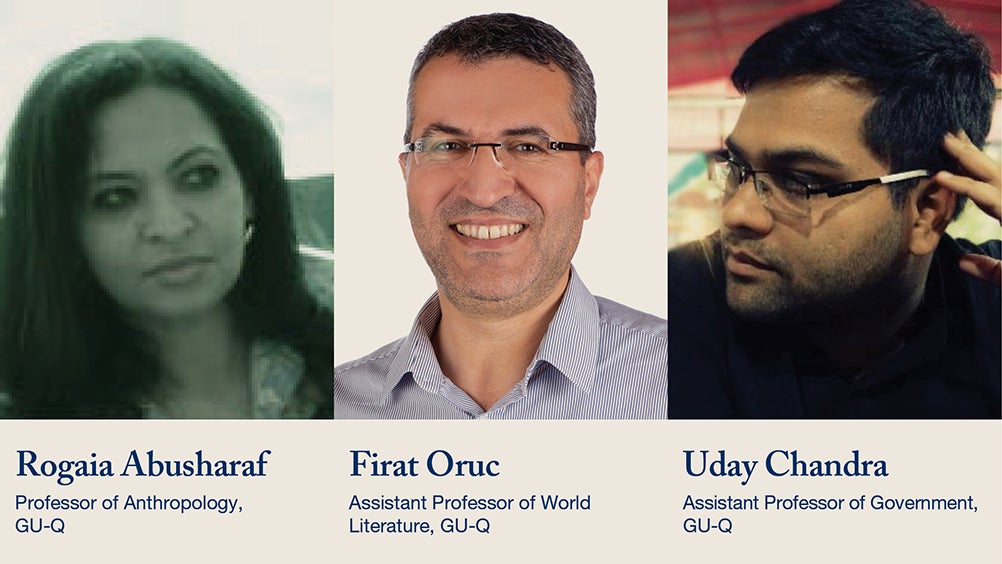Georgetown Research Panel Highlights Continued Importance of Dhow Shipping Vessels

Elegant wooden dhows are vestiges of Qatar’s maritime past, but in a recent research event hosted by QF partner Georgetown University in Qatar (GU-Q) titled “Of Voyages and Moorings: The Contemporary Dhow Trade in the Western Indian Ocean,” a panel of scholars explored the continued economic and cultural importance of these iconic sailing vessels.
The virtual panel discussion was hosted by the Indian Ocean Working Group (IOWG) at GU-Q, a multiversity research initiative that brings together scholars working in different disciplines from Qatar and around the world to explore the people and places of this under researched zone of complex human interaction throughout world history.
The panel of experts included members of the IOWG, including event moderator Assistant Professor of World Literature Dr. Firat Oruc, and panelists Dr. Uday Chandra, Assistant Professor of Government, and Dr. Rogaia Abusharaf, Professor of Anthropology.
“In the world of global shipping, dhows continue to play an economic role in providing transportation for goods, often offering services where larger vessels are unable to access,” explained Dr. Oruc. “For the IOWG, dhows provide an important lens through which to study and understand many other social, cultural, and political linkages that exist between regions in the Indian Ocean World.”
The event featured special guest speaker Dr. Nidhi Mahajan, Assistant Professor of Anthropology at the University of California-Santa Cruz and the inaugural Fatima Mernissi Postdoctoral Fellow in Social and Cultural Studies at The Africa Institute, Sharjah. She has also developed multi-media exhibitions at the Fort Jesus Museum in Mombasa, Kenya; Khoj International Artists’ Association in New Delhi, and for the 2019 Sharjah Architecture Triennial.
Her talk focused on the contemporary dhow trade, which continues to be centered in major port cities in the Gulf. Drawing on her research, Dr. Mahajan explored the ways the dhow industry is connected to broader geopolitical concerns across the Indian Ocean region, including economic trade policies, shifting regional conflicts, and the global shipping industry.
Students enrolled in GU-Q courses on the region were also in attendance and took part in the discussions. Course titles include “Introduction to the Indian Ocean World,” with Dr. Oruc, “Circulation and Sovereignty in the Indian Ocean,” with Dr. Chandra, who heads the IOWG, and “Gulf Societies and Genocide and Revolution in Postcolonial Zanzibar,” with Dr. Abusharaf. Formed in 2014, the Indian Ocean Working Group (IOWG) at GU-Q convenes researchers from across the world to build collaborative expertise across the boundaries of traditional area studies to remap the Indian Ocean World through historical circularities of people, culture, knowledge, ideas, commodities, technology, architecture, labor, and capital.